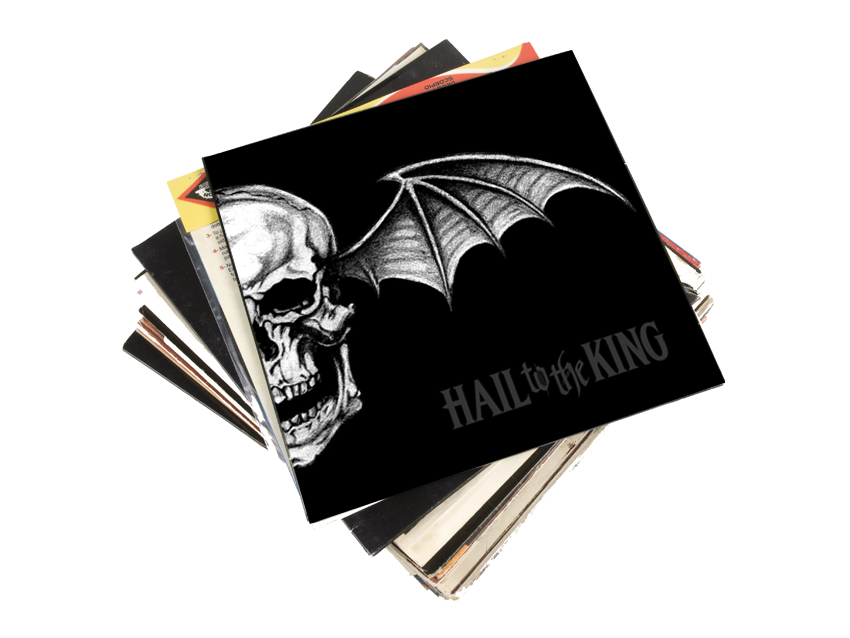
Synyster Gates talks Avenged Sevenfold's Hail To The King track-by-track
Avenged Sevenfold’s bold and revelatory new album, Hail To The King, has all the goods to be a runaway success: an abundance of panoramic riffs, gargantuan rhythms, bravura vocals, a dizzyingly affective narrative sweep and a sustained, epic roar that’s built for genuine speakers, not earbuds. With so much momentum behind it, it’s a little surprising to learn that the band’s members – guitarists Zacky Vengeance and Synyster Gates, vocalist M. Shadows, bassist Johnny Christ and new drummer Arin Ilejay – decided that the best way to push their music forward was by taking a look back.
“We spent some time listening to bands like Black Sabbath, AC/DC and Zeppelin,” says Gates. “The idea was to have an adventurous album where the songs were driven by big grooves and huge-sounding drums. We wanted to match a classic rhythmic feel with a very modern, progressive philosophy.”
But while musical reinvention might have been the creative order of the day, in a very real and significant way, Avenged Sevenfold had no other choice but to be a different band: Hail To The King is their first album on which founding member and drummer, the late Jimmy “The Rev” Sullivan, who passed way in December of 2009, played no part.
Asked to describe how new stickman Ilejay rose to the challenge in making his studio debut with the group, Gates says, “He really shined – got the feel, the sound and the power. It was his first big record, but fortunately he played a lot of shows with us before the recording, so that helped to clear the nerves away. And it wasn’t a one-take kind of thing, so he was able to explore the songs, get inside them and make them sound right.”
Ilejay’s chops helped to steer the course of the music during writing and demoing sessions, as well. “Being that if was a riff-oriented record, we went in for a few days and made sure we had some things that were appealing to the ear,” says Gates. “Then one of us would get behind the drums and jam it out. All of us can play drums a little bit, but we’re certainly not on Arin’s level, so he’d come in to show us what a real drummer can do and how the things would sound when played all-out. Hearing him made us either say, ‘Hmm, that riff can be a little better’ or ‘Wow, that’s amazing. We’ll definitely base a song around that.’”
Producer Mike Elizondo (Dr. Dre, Maroon 5, Mastodon), who manned the board for Avenged’s previous full-length, 2010’s Nightmare, returned for the new set. The versatile hit-maker ratcheted up the band’s already pulverizing sound, making it more direct without sacrificing nuances, and even while adding such elements as a choir intro here and a string arrangement there, he has an unforced, naturalistic sensibility.
“Mike brings direction to the band in times when we really need it,” Gates says. “His sense of musicianship and his awareness of orchestration are pretty valuable in that he contributes so many colors and textures to the music.” He laughs, then adds, “Plus, he’s just a good dude to hang out with. That always helps.”
On the following pages, Synyster Gates discusses Avenged Sevenfold's Hail To The King track-by-track. The album will be released in Australia and New Zealand on 23 August, in the UK on 26 August, and in the US and Canada on 27 August. To pre-order the album, click on this link. For tour dates, visit this link.
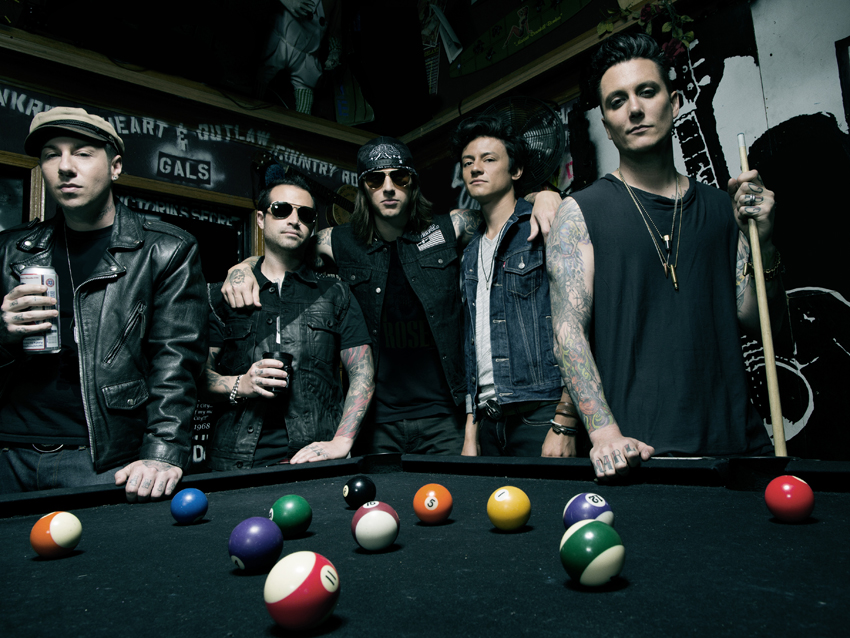
Shepherd Of Fire
“We intentionally wrote it as an intro track. The idea was that the arrangement would evoke a sense of imagery with the tribal yet primordial drums. It seemed to resonate from Hell almost. It’s something of an apocalyptic call to arms.
“I love the arrangement. We wanted to set up the album and foreshadow what was to come, being that it’s a groove-based, riff-oriented record. We haven’t really done Zeppelin-style or Sabbath-like riffs before, so this is our version of an album that’s along those lines.”
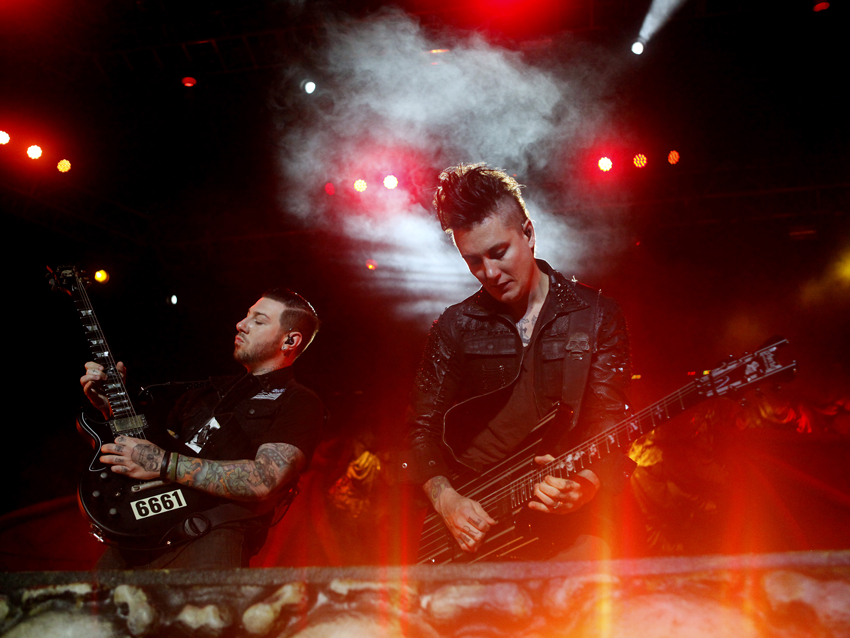
Hail To The King
“I’ve been playing a lot of gypsy jazz guitar – Django Reinhardt and a few others – so for the intro, I kind of take that technique and apply it to metal. It added a pretty cool new dimension that I haven’t really heard in rock music before.
“The whole solo is based on minor blues changes. I like it when it transfers to that regal feel, which aligns with the lyrics. A lot of people get confused and think that it’s neo-classical, but it’s really gypsy jazz.”
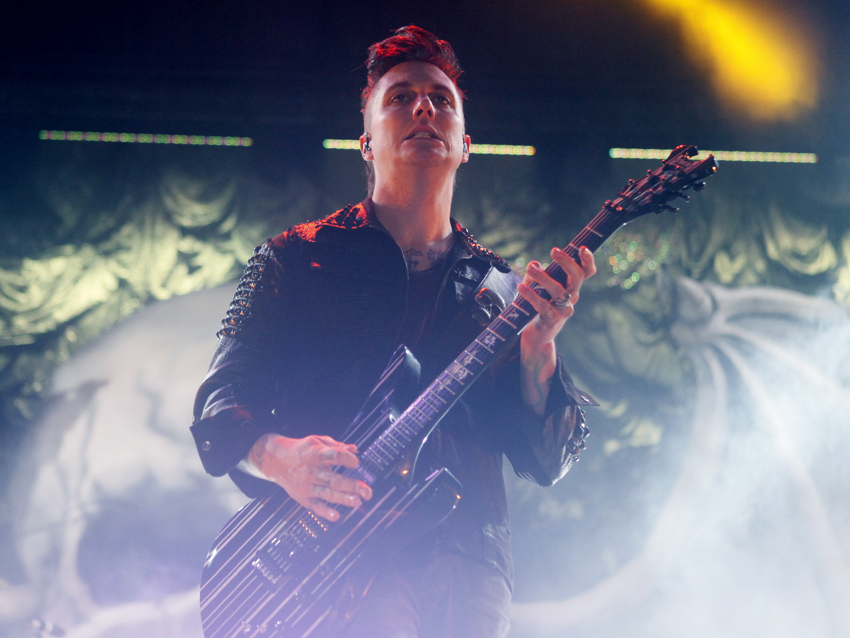
Doing Time
“This was a Mike Elizondo suggestion. He was hearing a kind of low vocal, swagger-based rock song, sort of a quintessential ‘80s or ‘90s vibe but with a very modern approach. It’s a bad freight train that never stops.
“For this solo – and for all of them, actually – I tried to just jam with the songs instead of being overly analytical about what I was doing. I sat with Mike and the rest of the guys, and I would play until everybody was on board with the way it was going. The main thing was that I wanted the songs to influence my playing rather than me imposing a signature style on the music.”
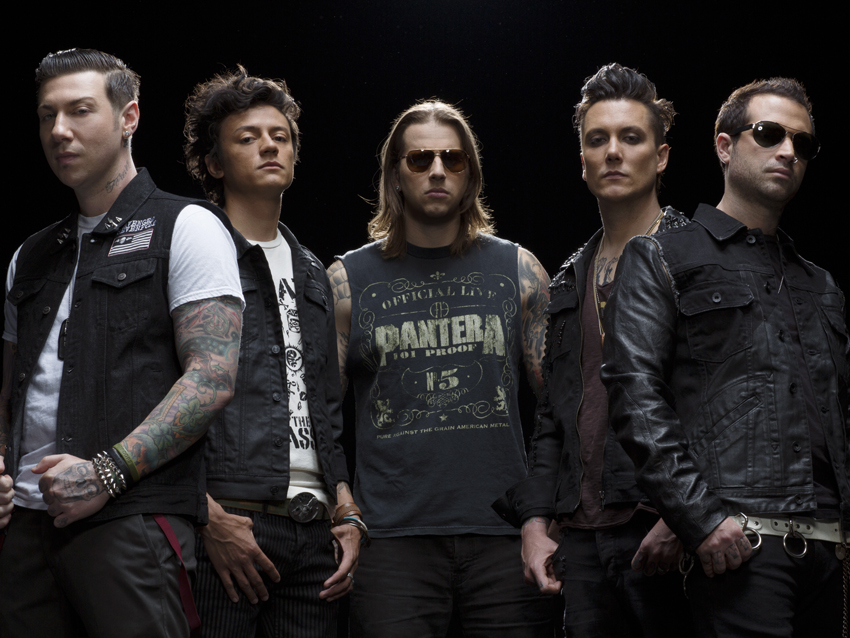
This Means War
“We wanted a really impactful, riff-based intro but one that would also feature our dual lead harmony approach. It’s pretty cool how it fits into the slow groove of the track and just hammers through.
“This song is becoming one of my favorites. I’ve been really enjoying watching people listen to it because it so fits the vibe of the album. When they hear it, they start moving, and they don’t stop. Sometimes, with more progressive songs, you lose that fee somewhere along the line, but This Means War never quits – the energy is always there.
“All of my solos were improvised initially – I would go in and get my bearings and see what I came up with. I was hearing something chaotic in the intro, a machine-gun spray that would build into something more melodic.”
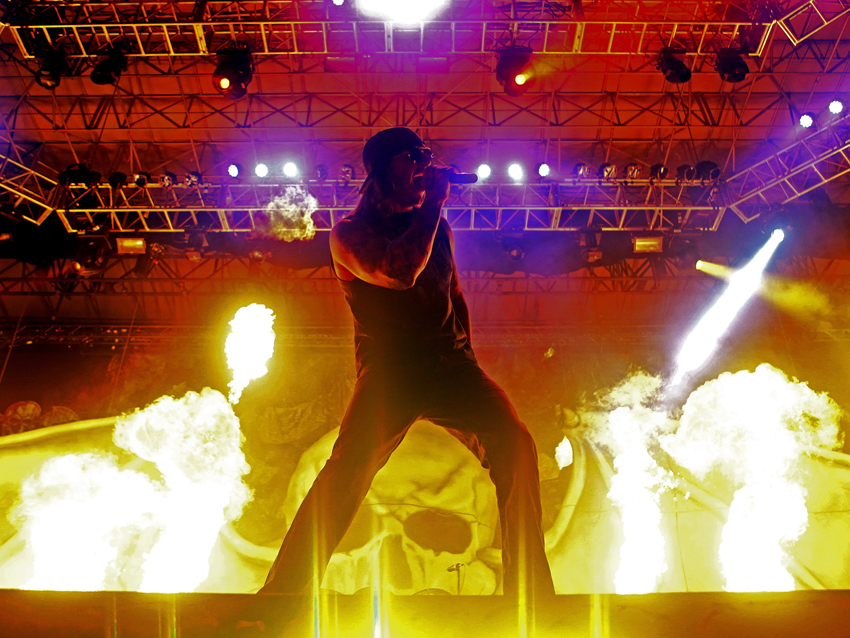
Requiem
“The choir in the beginning is great. I’m very excited about how this song turned out. We wanted the foundation to be a metal band’s approach to classical orchestration.
“Matt’s vocal is more like a lead violin part, and when my guitar chugs underneath the riff, it’s almost like what low brass would do. We layered each element very carefully, and the result is one of the more cinematic tracks on the record.
“The solo was a fun one. I don’t do a lot of wah stuff, so I had a great time playing around with that. The wah gave it an added dimension and colors, some new life."
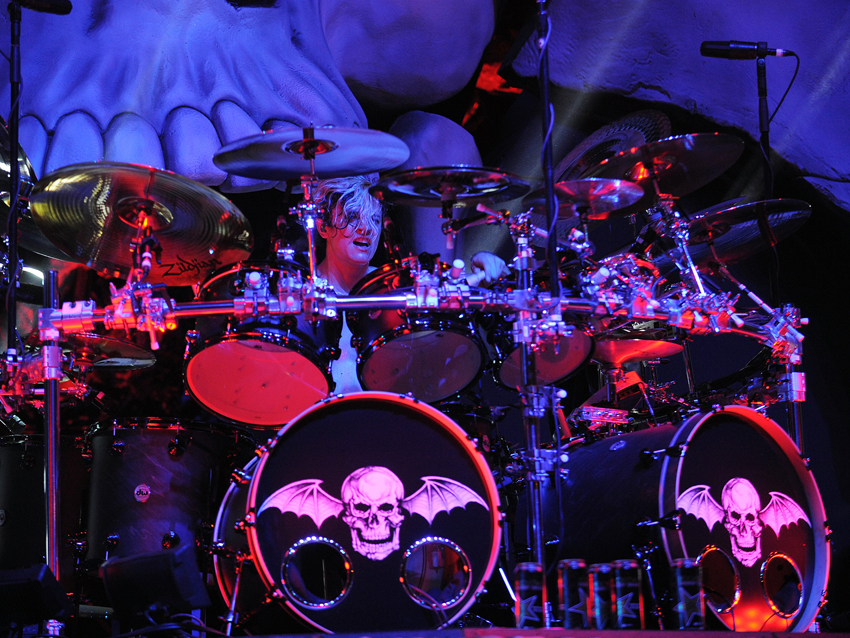
Crimson Day
“That’s a clean-sounding electric guitar on the opening, not an acoustic – there were no mics on the guitar involved, just on the amps. It’s one of my favorite clean tones I’ve ever fucking heard.
“We stumbled onto it by accident, actually. There were a few secrets in getting it, mainly that it’s a baritone guitar with a capo on it so I could play it in open E standard tuning. It has a really sick, rich, sparkly sound. Seriously, I’m so proud of how it turned out.
“We wanted the song to have huge drums and be an epic rock ballad. It has a somber vibe, but it doesn’t make you fucking sad all the way through. We were listening to a lot of Elton John, some Ozzy ballads and some Zeppelin. Actually, the lyrics are inspired by my nephew, so the song has a very personal meaning to me."
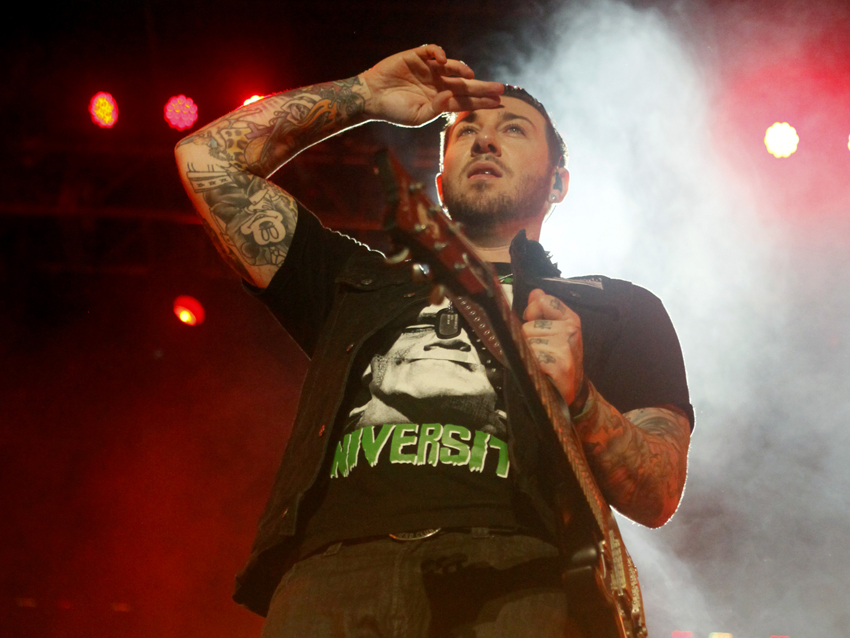
Heretic
“This was probably the first song that we wrote for the album, so there’s a bit of a throwback to the old, traditional Avenged stuff. It’s a little progressive, but we wanted to maintain some space in the arrangement so the drums could shine and the riffs and vocals could breathe.
“That’s a pretty important point, really, because we tend to fill things to the brim with guitar harmonies, vocal harmonies, lead things going in and out. Leaving a feeling of air made a big difference in how all of the parts stood out.
“This is a lot of guitar, though, some big moments. If you’re not the biggest groove fan – and it you’re not, you should be – there’s still a progressive element. So it’s a mix, this song, and it worked out really well.”
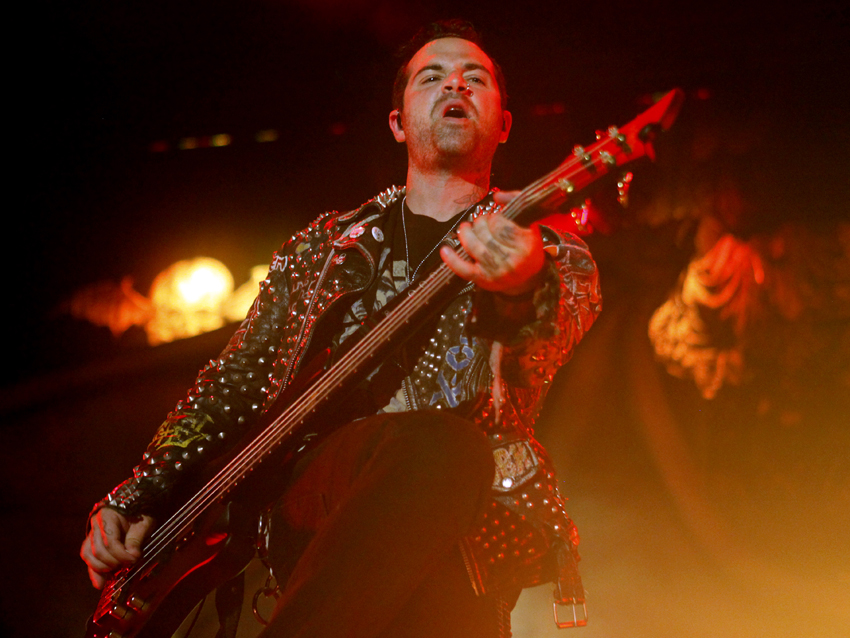
Coming Home
“Another Mike suggestion. He wanted us to do something upbeat, but we wanted to make sure that it didn’t get hokey – we’ve done upbeat before, and sometimes things can get a little too cutesy and sugary. Our goal was to have a darker, more serious tone, which can get lost when you increase the tempo.
“It’s very adventurous, but it maintains that upbeat vibe. There’s some great drumming on it, and I’m really excited about the guitar work. The solo is big. Instead of doing a vocal bridge, we decided to do one with the guitar and have it take you places. I think it fits with the imagery of the lyrics, which are very personal but still presented in a way that people can relate to it. The words are very ‘storyteller-y,’ concerning travel and endeavors, but they're not necessarily concerned with present time. The guitar stuff goes hand-in-hand with all of that.”
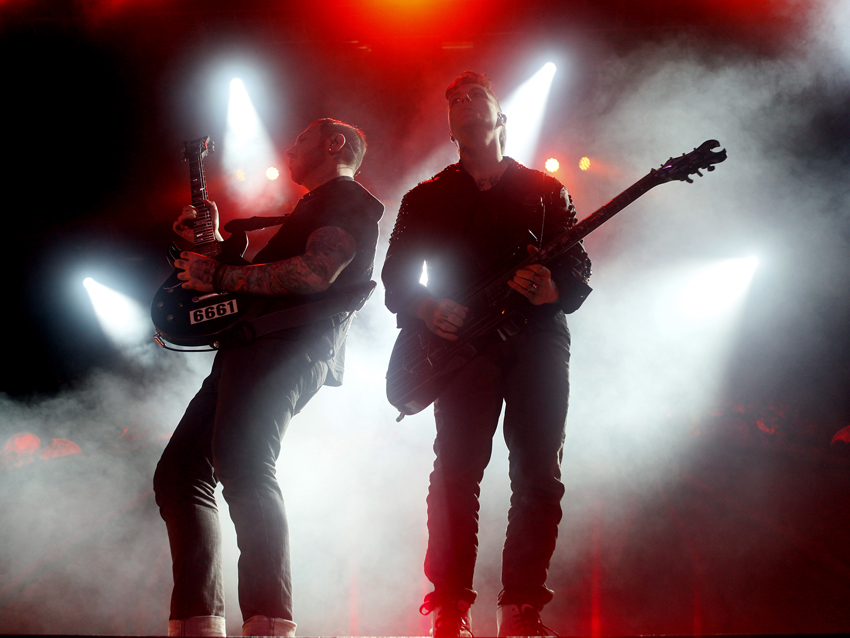
Planets
“To me, the last two songs, in addition to being my favorites, make up the best ending to a record we’ve ever had. Lyrically, Planets is the precursor to Acid Rain; it’s about a meteoric, intergalactic war that results in an apocalypse and the human species aligning together to go fight something much better than us, our individual trials and tribulations.
“Musically, the song was incredibly difficult to write and pull off – the elements of dissonance, tension and resolution. We wanted to have that friction throughout, but it still had to be palatable; it couldn’t be like listening to Penderecki or Stockhausen. There had to be a relatability and connectability to it.
“We really toiled over the track, but it turned out great. I’m so fucking excited about it.”
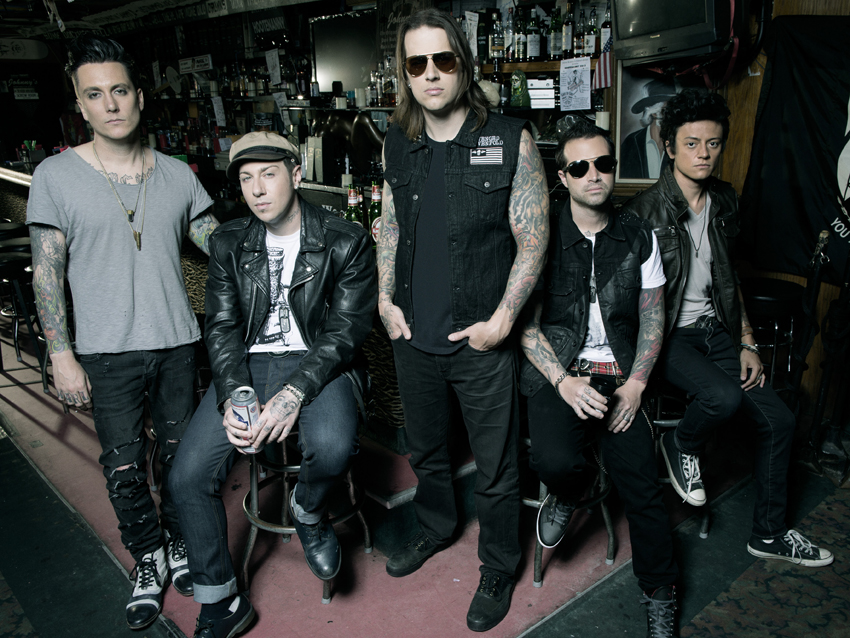
Acid Rain
“It’s a cool way to end the record – not a typical ballad, but it’s not soft or sugary, either. The song takes you to an emotional place, especially if you pay attention to the lyrics, which are some of the best Matt has ever written.
“The song is about coming to the realization that you’ve lost the battle, but at least you’re with that one special person who matters. It’s something of an apocalyptic love story, which is pretty unique for us.”
Joe is a freelance journalist who has, over the past few decades, interviewed hundreds of guitarists for Guitar World, Guitar Player, MusicRadar and Classic Rock. He is also a former editor of Guitar World, contributing writer for Guitar Aficionado and VP of A&R for Island Records. He’s an enthusiastic guitarist, but he’s nowhere near the likes of the people he interviews. Surprisingly, his skills are more suited to the drums. If you need a drummer for your Beatles tribute band, look him up.
